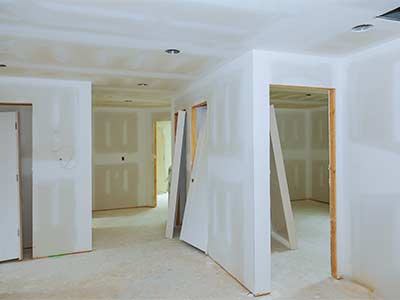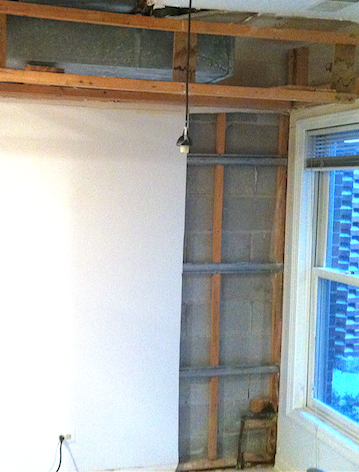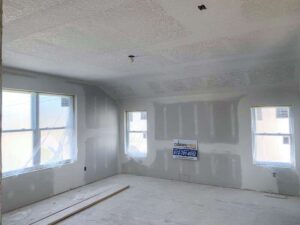
Orbital Sanders are versatile tools that can be used in many different applications. They are lightweight and compact so they can be easily fitted into tight spaces. Their quietness is the best thing about them. These tools are versatile and can be used to do a variety of tasks, such as painting, refurbishing or sanding drywall. Here are some things to remember when purchasing one.
First, it is important to choose the right type of sander. A larger machine is better if you plan to sand large areas. You can cover a larger area in a shorter time and get more done. You may find a smaller tool more useful if you are sanding only a small area.
When it comes to selecting an orbital sander, it's important to consider the type of material that you'll be sanding. For drywall, you'll want to pick a sander that has a higher grit number. To avoid damaging the finish, be cautious when using the sander.

A powerful motor is also a must. Generally, random orbital sanders are rated in amps. You will find sanders available with either 2A, 5, or 8A motors. For speed control, make sure you choose a sander with a variable speed controller. Variable speed control allows you to adjust the sander’s aggressiveness. This will give you a smooth finish.
You should also look for a sander with a dust collection system. You will have the best dust collection system to ensure you have the cleanest sanding experience. Many random orbital sanders have a canister or shop vacuum, which will work in conjunction with the sander to collect dust. HEPA filters can be added to some sanders to help reduce the dust emission.
Remember to consider the grip of your orbital sander when purchasing one. The majority of orbital sanders include a handle that can attach to a long telescopic pole. But, you will want a sander which offers a more comfortable grip.
The size of your sander is also important. This is important as you need to ensure that the sander will fit in the space where you are working. A dust-sealed switch is also an important feature. Unwanted dust can be prevented from entering the sander by keeping the switch clean.

It is also important to verify the warranty of the manufacturer. A random orbital sander usually comes with a one or two year warranty. If you will be using the tool on an ongoing basis, it is worth looking for a model with three years warranty.
An orbital sander can be a powerful tool to sand drywall. They are easy to use, and you can work in any direction. But, they're not for extensive sanding jobs. It is a smart idea to learn about orbital sander operation in order to get the most of it.
FAQ
Can I rent a dumpster?
To help you get rid of the debris from your home remodeling project, you can hire a dumpster. A dumpster can be rented to help keep your yard clean and free of trash.
How do I renovate my house with zero money?
When renovating a home without spending money, the following steps should be followed:
-
A budget plan should be created
-
Find out which materials you require
-
Decide where you want them to go
-
Make a list of things you need to buy
-
Calculate how much money is available
-
Plan your renovation project
-
Start working on your plans
-
Do some research online
-
Ask family members and friends for help
-
Be creative!
How do I choose a good contractor?
Ask family and friends for referrals when looking for a contractor. You can also look online for reviews. You should ensure that the contractor you select has experience in the field of construction you are interested. Ask for references and check them out.
Are you able to live in a renovated house?
Yes, you can live in your house while you renovate it.
You can live in a house that is being renovated while you are renovating it. The duration of the construction works will affect the answer. If the renovation process lasts less than 2 months, then yes, you can live in your home while it's under construction. However, if the renovation project lasts longer than two months, then no, you cannot live in your home while the renovation is taking place.
The reason why you should not live in your home when there is a major construction project going on is because you might get hurt or even killed due to falling objects from the building site. The heavy machinery and noise pollution at the job site can also cause dust and noise pollution.
This is especially true for multi-story houses. In such cases, vibrations and noises from construction workers may cause irreparable damage to your property.
You'll also need to cope with the inconvenience of living in temporary housing while your house is being renovated. You won't have all the amenities of your home.
For example, you will not be able to use your washing machine and dryer while they are undergoing repair. The workers will make loud banging noises, paint fumes, and chemicals obstruct your ability to use your dryer and washing machine.
All these things can lead to anxiety and stress in your family. To avoid becoming overwhelmed by these situations, it's important to plan ahead.
Do your research before you begin renovating your home. You can avoid costly mistakes later.
You can also consider professional advice from a trusted contractor to ensure smooth running of your project.
Do I have to renovate my entire house?
Why pay someone to do it for you when you can do it yourself?
It doesn't matter how much you love DIY, there are times when you simply cannot do it yourself. There could be too many variables to manage.
An example: If your house is older than you think, it might be that the wiring is unsafe. You will need an electrician to inspect and make sure that your system is reliable and safe.
You also need to consider the fact that you might not be able to handle any kind of structural damage that might occur during the renovation process.
Additionally, you may not have the right tools to complete the job. If you want to install a new kitchen faucet, you will need a plumber's serpent, which is a tool that clears clogged pipes.
You will also need a licensed plumber to work on your plumbing project.
Let's just say that you must know what you can do before you undertake such a daunting task.
If you aren't sure if you have the skills or knowledge to tackle the task, get help from your family and friends.
They can give you advice on what steps you need to take and where you can go to learn more about the subject.
Is it cheaper to build a new house or remodel an old one?
There are two choices if you are thinking of building a new house. One option is to buy a pre-built home. This home is ready for you to move into. A custom-built home is another option. You will need to hire a professional builder to help design and construct your dream home.
How much time and effort you put into designing and planning your new home will determine the cost. You'll probably need to do the majority of the construction work yourself if you build a custom home. This will require more effort. You also have greater control over the materials and their placement. It may be easier to find a contractor who is skilled in building custom homes.
A new home is typically more expensive than one that has been renovated. That's because you'll pay more for the land and any improvements you make to the property. Plus, you'll need to pay for permits and inspections. The price difference between a newly built and remodeled home averages $10,000-$20,000.
Statistics
- Most lenders will lend you up to 75% or 80% of the appraised value of your home, but some will go higher. (kiplinger.com)
- It is advisable, however, to have a contingency of 10–20 per cent to allow for the unexpected expenses that can arise when renovating older homes. (realhomes.com)
- On jumbo loans of more than $636,150, you'll be able to borrow up to 80% of the home's completed value. (kiplinger.com)
- ‘The potential added value of a loft conversion, which could create an extra bedroom and ensuite, could be as much as 20 per cent and 15 per cent for a garage conversion.' (realhomes.com)
- Rather, allot 10% to 15% for a contingency fund to pay for unexpected construction issues. (kiplinger.com)
External Links
How To
5 Things You Should Know Before Starting Your House Renovation
-
Do you really want this? If you are planning to do major home improvements like renovating your bathroom or building new houses, you will likely need help. But if you don't feel confident enough to tackle such a large task alone, then you might want to reconsider doing so. You could lose a lot of time and money and not reap any real benefits. Instead, hire someone who has experience in this field to assist you. They'll save your time and make it easy for you to have a wonderful place to call home.
-
How much should you spend? This is a common question, but it can make renovations more expensive. The reason is because you'll probably find yourself having to pay back most of the costs at the end of the day. Stick to your budget if you have one! If you don't, you might end up spending a lot of money and not receiving anything.
-
Do I prefer to hire professionals or DIY? - Although there's no right answer, we would recommend hiring professionals if you have the means. They'll give you the best advice possible on how to proceed with your particular project. They will be able to install the plumbing properly, make sure everything is safe, and give you a warranty after they are done. DIY projects often involve a lot trial and error. You'll learn a lot the hard way. Plus, you'll have to deal with all sorts of problems that arise during the process.
-
What are my options? - Don’t underestimate the cost associated with a home renovation. Even if the project seems manageable, it could prove costly and you will need to borrow money. You should also consider the cost of selling your property if you plan to move soon after the renovations are completed.
-
Where should I begin? There is no right or wrong place to begin when it comes to starting. But, we recommend you pick something you love to work on. If you enjoy what you do, you will be more motivated to continue working and less likely procrastinate. Also, avoid places that are difficult to maintain. You should avoid redecorating your living room if it is always covered in dirt and dust.